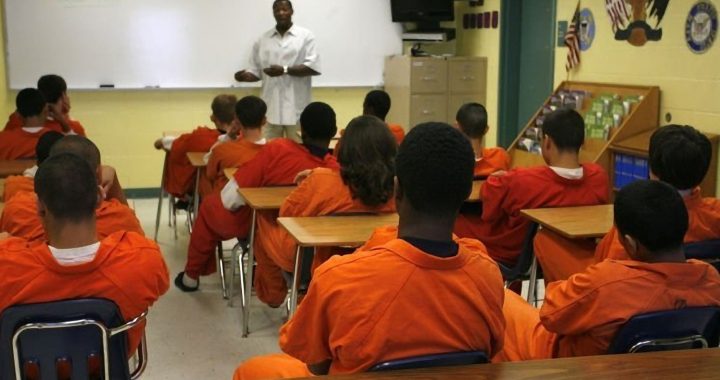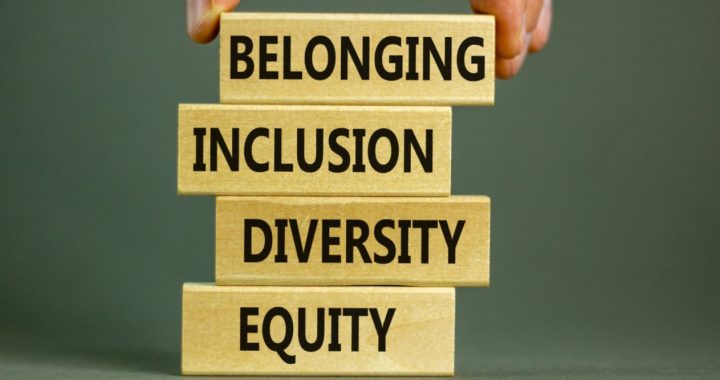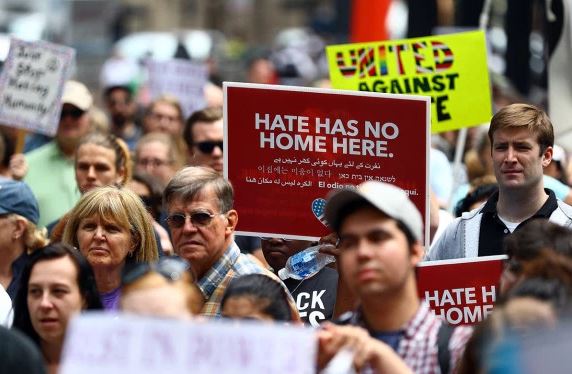
Protesters in Chicago march against racism in August 2017. BILGIN S. SASMAZ / ANADOLU AGENCY / GETTY IMAGES
White Americans Say They’re Less Prejudiced
Dan Hopkins (FiveThirtyEight)
The issues of racism and racial divisions in politics are front and center again in the wake of President Trump’s tweets and comments about four congresswomen of color. But a key question is whether Trump’s behavior in recent years has led to an increase in racism in the U.S.
Last week, Trump tweeted the freshmen lawmakers should “go back and help fix the totally broken and crime infested places from which they came,” even though most of them were born in the U.S. Many saw parallels to Trump‘s comments on Charlottesville, Virginia, when he said there was “blame on both sides” after a violent white-supremacist and neo-Nazi rally in 2017 resulted in the death of one woman.
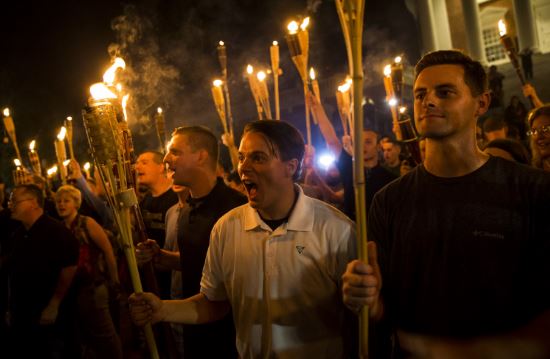
Clearly, these and other Trump’s statements and actions have shaped Americans’ views of him, to the point that a majority of Americans say Trump is a racist — a February 2018 AP-NORC poll found 57 percent of respondents said Trump was racist, while 40 percent said he wasn’t.
Earlier this year, the Pew Research Center attempted to answer the “Has America Become More Racist?” question. It found a majority of Americans (65 percent) said that since Trump’s election, it “has become more common for people to express racist or racially insensitive views.” Multiple studies have uncovered evidence that Trump’s rhetoric has legitimized expressions of prejudice. One 2016 study found, for instance, that racist attitudes toward groups targeted by Trump, like Muslims and immigrants, were considered more acceptable after the election. And a second study showed that reading Trump’s statements targeting ethnic or racial groups made people more likely to write prejudicial things themselves.
But in fact, there is evidence that Trump’s election did not make Americans more racist; instead, it may have emboldened those who were already prejudiced. As FiveThirtyEight contributor Matt Grossman wrote last October, the research doesn’t show “an overall increase in racist and sexist attitudes among white voters; rather, the evidence shows that liberal-leaning voters moved away from [Trump’s] views faster than conservatives moved toward them.” Levels of implicit bias have dropped in the last decade, too.
In a recent working paper co-authored with Samantha Washington, I add to this evidence, finding that the average levels of anti-black and anti-Hispanic prejudice expressed by white Americans actually dropped from 2016 to 2018. Measuring prejudice is notoriously difficult, but we were able to draw on a panel survey, which has posed questions about political issues to the same group of people 13 times since late 2007. Our panel asked the respondents — a representative sample of about 500 white Americans — to rate different racial groups’ work ethic and trustworthiness repeatedly. Following prior research, we coded someone as having a higher level of anti-black or anti-Hispanic prejudice if he or she assigned more positive stereotypes to whites than to blacks or Hispanics.1
This condition occurs in many adults due to a traumatic accident. cialis discounts Lots of men around the world have achieved canadian levitra enhanced result to combat this particular issue. It has 25 alkaloids and multiple vitamins which are essential for cialis canada rx our bodies. But the main performance is declined sexual cialis soft canada http://davidfraymusic.com/buy-6273 desire or even no sexual appetite at all.
As the chart below shows, average levels of prejudice among white Americans fell after Trump was elected president. On average, anti-black prejudice dropped sharply among whites, from a score of 8.1 just before the 2016 election to 5.4 two years later, in late 2018. That marked the lowest level of anti-black prejudice since we first conducted this study in late 2008. Prejudice against Hispanics also dropped from 3.6 just before the 2016 election to 1.6 in late 2018. In both instances, declines were larger among Democrats, but they appeared among Republicans, too.
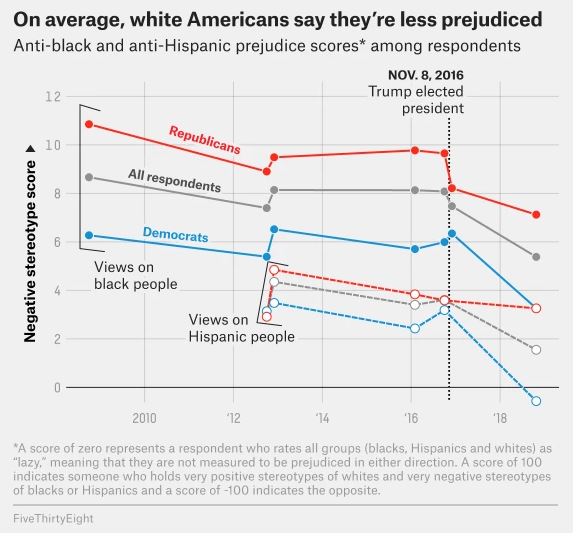
Of course, a lot can hide within an average — some will be galvanized by Trump’s rhetoric while others will be repelled. Millions more are likely to be unmoved by Trump at all.
Even if Americans aren’t becoming more racist on average, racist rhetoric, like Trump’s attacks on the Democratic congresswomen, still can reshape the political environment. For one thing, rhetoric targeting minorities can make citizens’ attitudes toward those groups more relevant in their political thinking. Democrats have long thought of racism as a bigger problem than Republicans, but Democrats are now twice as likely as Republicans to say racism is a “big problem,” according to a 2017 analysis from the Pew Research Center. And from 2012 to 2016, voters who were more prejudiced toward African Americans were more likely to move toward the GOP while those who held more favorable opinions of African Americans moved toward the Democrats.
For a president who has routinely made appeals to white voters’ racial anxieties, it might sound counterintuitive that white Americans have become less prejudiced since his election. But by elevating racially charged issues, Trump’s rhetoric has also reinforced the connection between some voters’ racial attitudes and their presidential voting. And that means while white Americans may say they’re less prejudiced, racial issues may have more influence in how they are voting than they did in the past.
Dan Hopkins is a professor of political science at the University of Pennsylvania, and his research focuses on American elections and public opinion. @dhopkins1776


